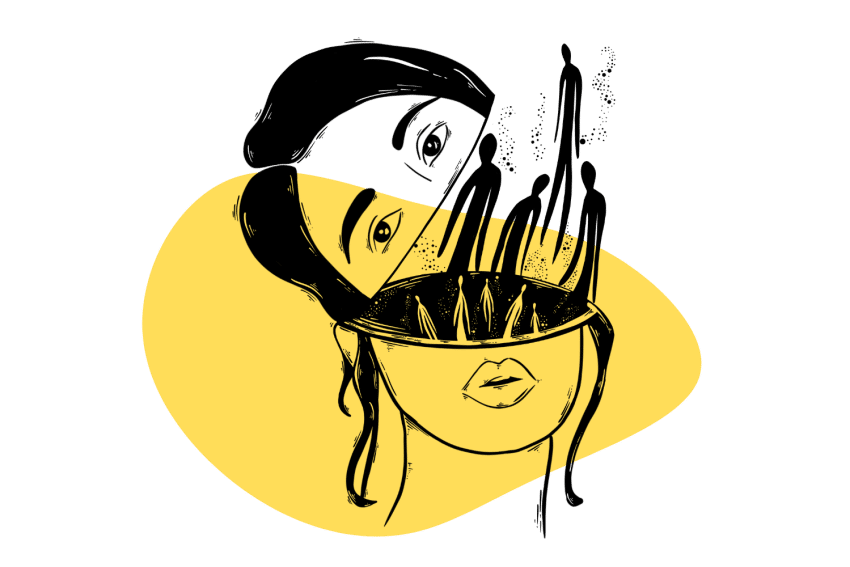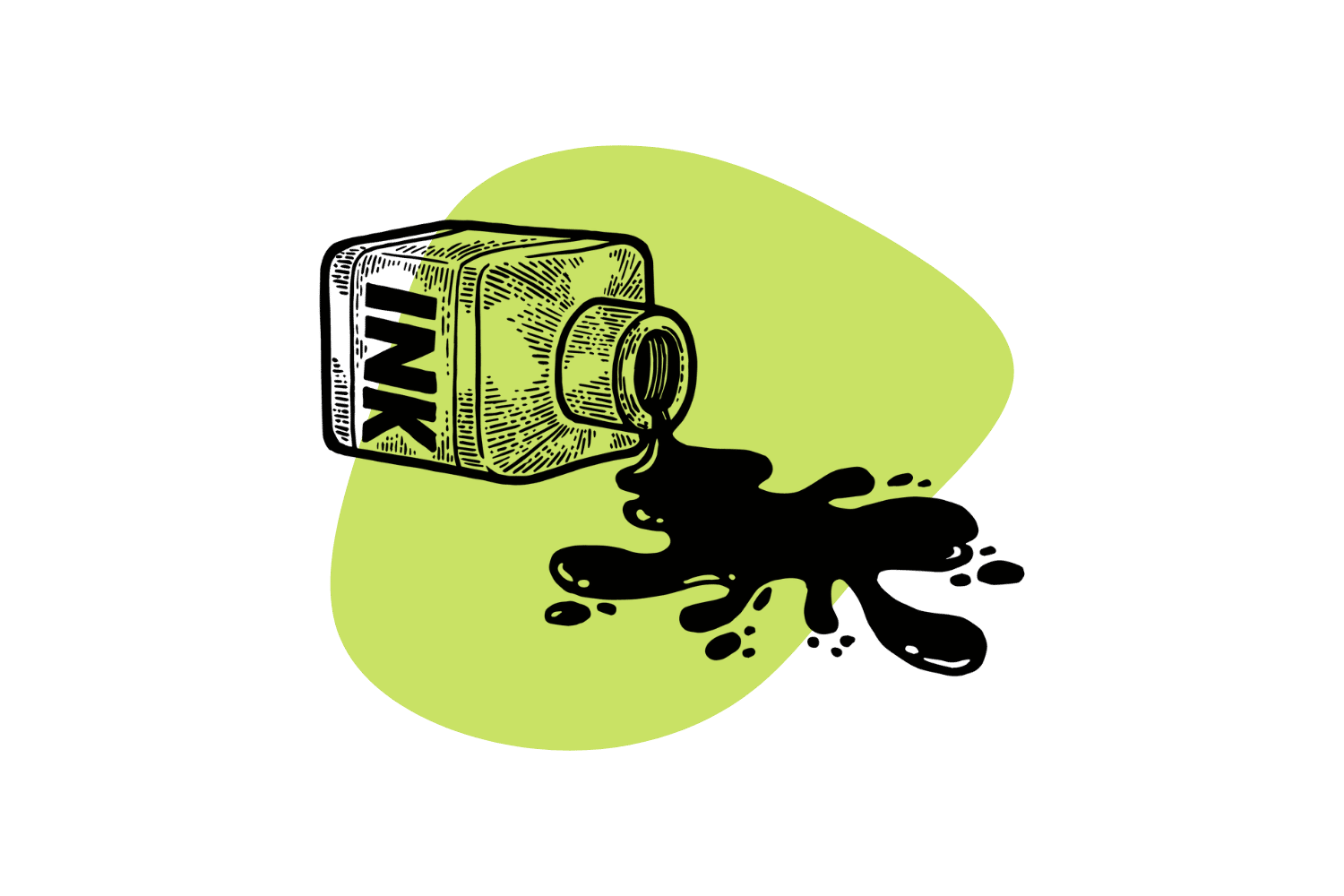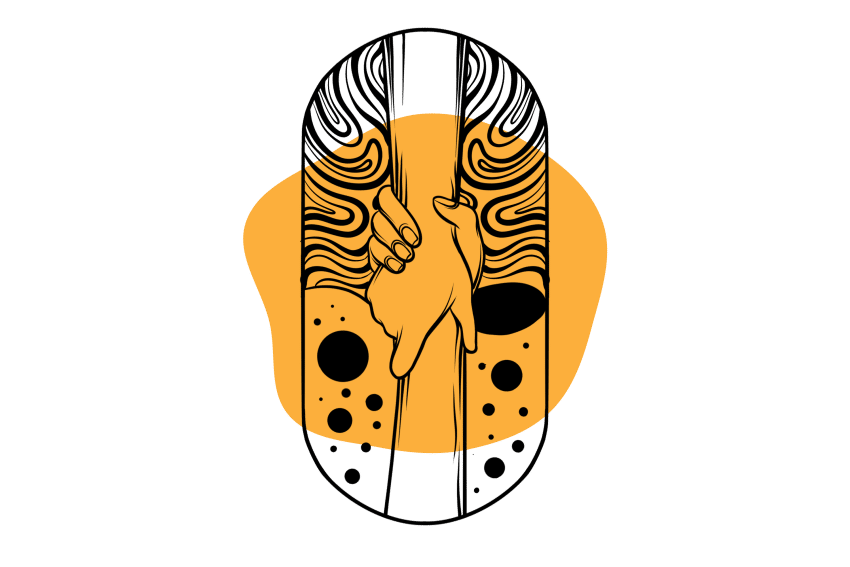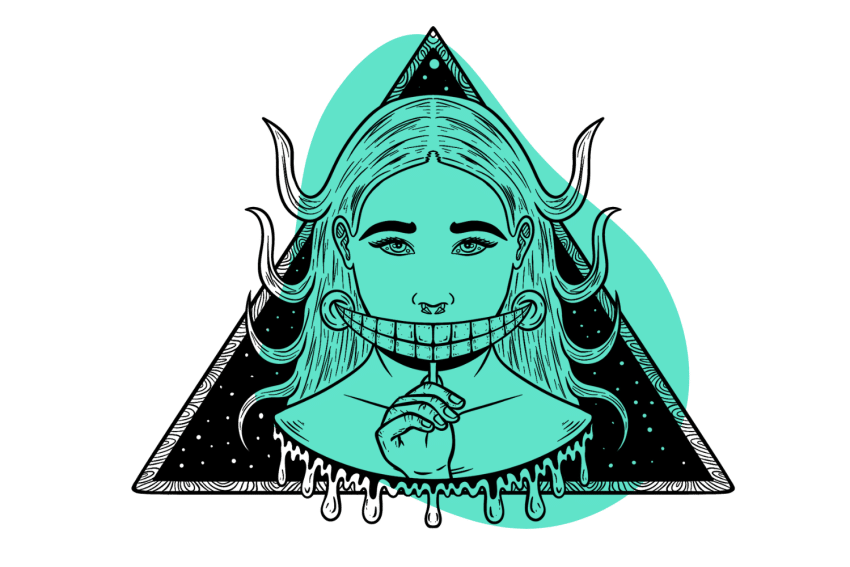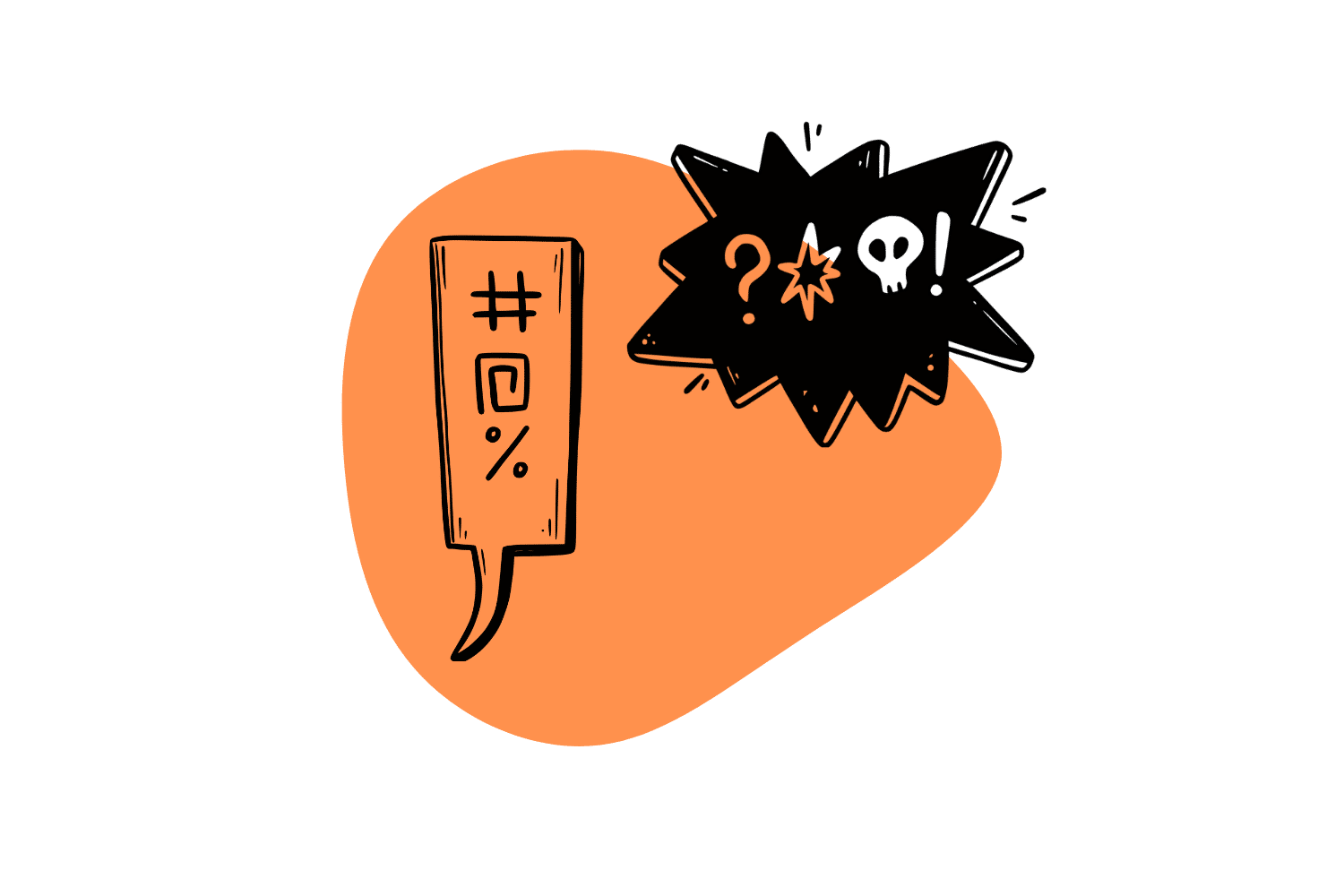Will Insurance Pay for Psychedelics? — Funding Psychedelic Therapy
We’re in the midst of a mental health crisis. Psychedelic-assisted therapy brings hope during dark times, but it comes at a cost many can’t afford. Will insurance pay for psychedelic therapy?
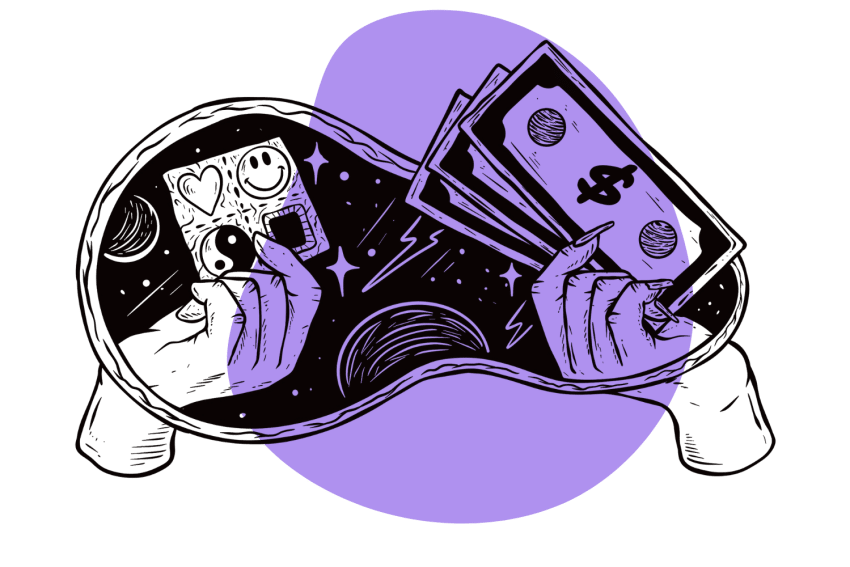
Psychedelics, such as psilocybin-containing mushrooms and LSD, are becoming increasingly popular. While they induce intense psychedelic trips, that’s not the main reason for their recent popularity.
Psychedelics have shown promise in treating complicated mental health issues — from depression to PTSD. When used as therapeutic tools, psychedelic drugs can produce outstanding results in patients that have tried everything else.
People suffering from addiction, PTSD, anxiety, depression, and other mental illnesses report life-changing results after using psychedelics.
But this emerging therapy comes with a hefty price tag.
This raises the question, “Does insurance cover psychedelic-assisted therapy?”
We’ll answer that question and look at how you may be able to fund treatment with psychedelics.
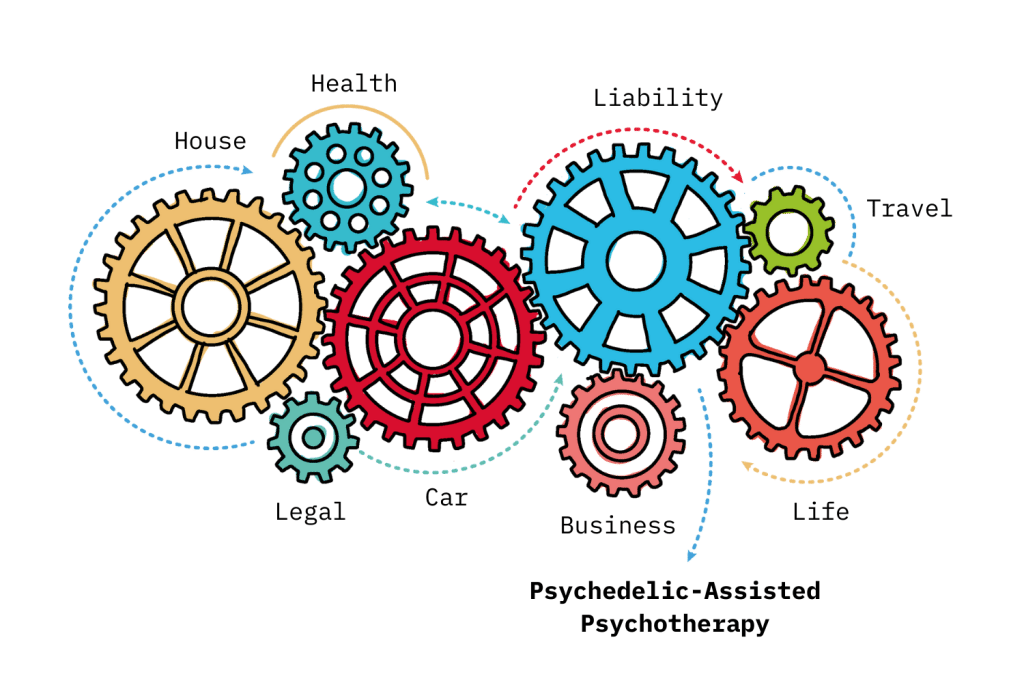
Are There Any Insurance Providers That Cover PAP Treatment?
Psychedelic-assisted psychotherapy (PAP) involving substances such as MDMA, psilocybin, and LSD is still illegal in most countries — but things are about to change.
Ketamine therapy is already legal in Canada and the US, and MDMA-assisted therapy is on the verge of legalization in the US.
At the moment, just a few insurance companies cover some of the cost of ketamine therapy (such as Blue Cross Blue Shield, Cigna, Veterans Affairs, and United Healthcare) but stringent terms apply and coverage is only available for select clinics in select states. No insurance companies currently cover the cost of MDMA, LSD, ibogaine, or psilocybin treatments in the US.
We expect this to change as the legal status of PAP involving other substances becomes legalized in the coming years.
Insurance Coverage for Ketamine Treatment
An intranasal ketamine-derivative spray called Spravato was approved by the FDA back in 2019. This spray was designed for patients with treatment-resistant depression.
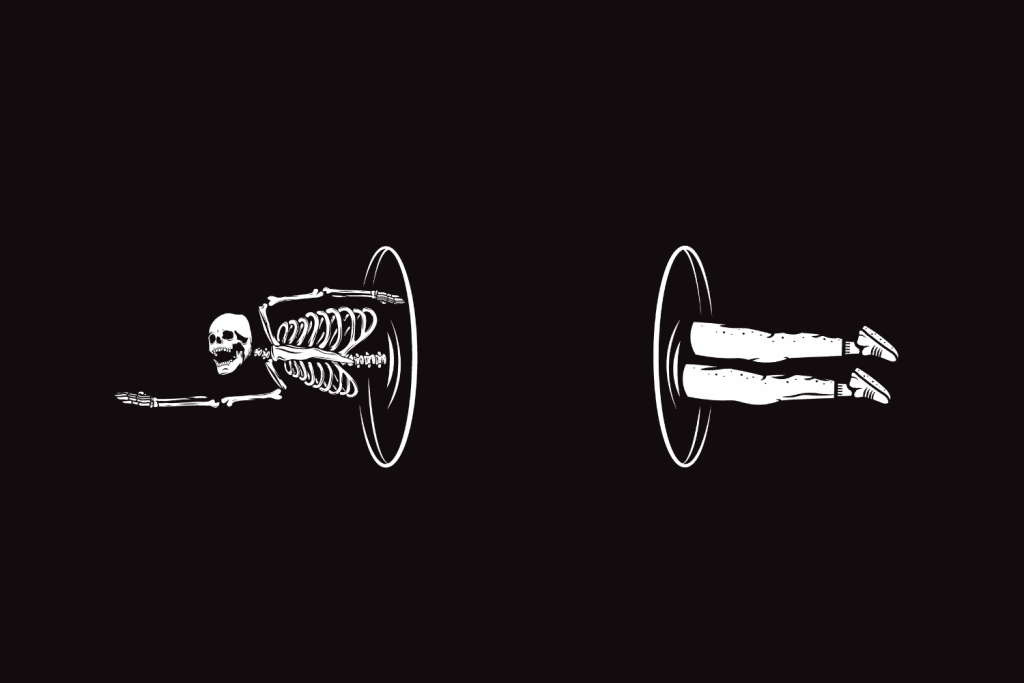
The list price for this substance sits at $590 to $890, but the costs of the initial treatment sessions ($4,000 to $6,000) and subsequent treatments ($2,000 to $3,500) push the overall cost up.
Some insurers will cover the cost of ketamine treatment involving Spravato or IV ketamine therapies — but they’re few and far between. If you wish to undergo this treatment, contact your insurer first or find an insurer that will cover the costs.
Your insurer could cover the entire cost, part of the cost, or reimburse your out-of-pocket expense — depending on their specific policy (if any) on the ketamine-based treatment.
Insurance Coverage for Psilocybin Treatment
Unfortunately, it’s highly unlikely that you’ll find an insurance company to cover the costs of psychedelic-assisted therapy involving psilocybin. This is a controlled substance in the US, and your only hope of receiving legal treatment is to be part of a clinical trial.

If you’re lucky enough to snag a spot in one of the clinical trials, the therapy is free of charge, and the company covers your travel, accommodation, and food expenses.
Until there’s more development in the legalities of the use of psilocybin in therapy, we won’t see insurers developing coverage policies for patients that would benefit from the treatment. For now, the only treatment of this kind that could be covered by insurance is the Spravato ketamine treatment mentioned above.
Alternative Ways to Fund Psychedelic-Assisted Therapy
Although most insurance companies don’t cover treatments involving psychedelics, there are a few options open to those that would benefit from PAP but can’t necessarily afford it.
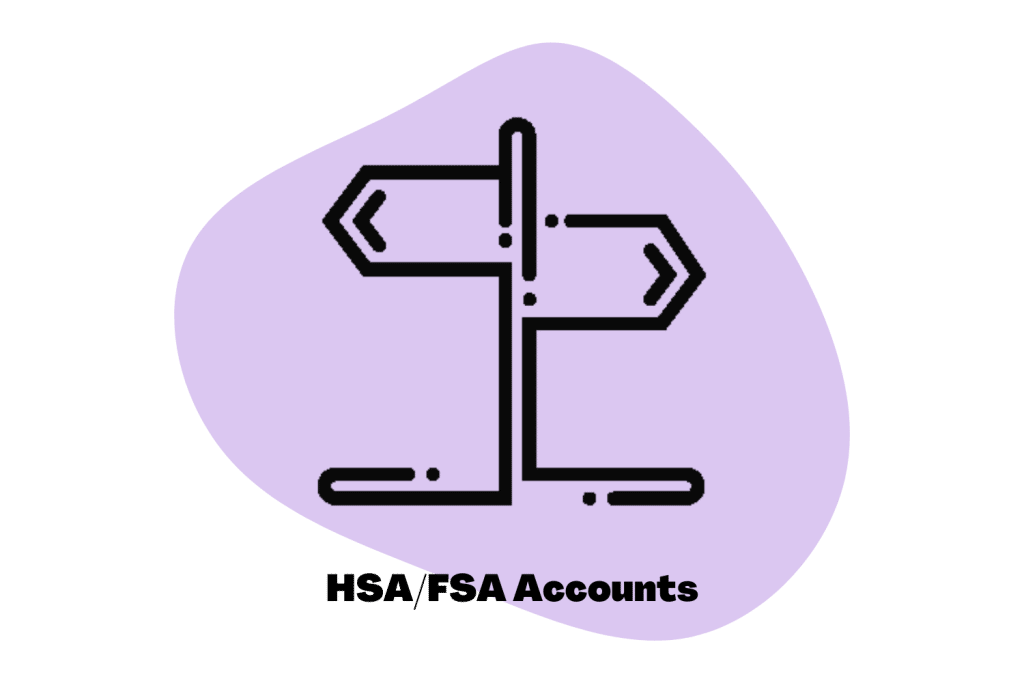
1. HSA/FSA Accounts
Health Savings Accounts (HSA) and Flexible Spending Accounts (FSA) are two ways that could fund at least part of a PAP treatment.
Both of these pre-tax banking solutions work in a similar way and can help you save money and pay for out-of-pocket expenses.
Any money you save toward medical expenses is tax-free in the United States, so a health savings account is fantastic if you’re looking to fund your own psychedelic therapy. In some cases, your employer may also contribute to the account, making it easier and faster to save money for treatment.
A flexible spending account can help you reach your goals even more quickly. This account is also tax-free, proving you’re saving money for health expenses.
FSAs allow you to withdraw money before you’ve deposited it but beware, you must use the savings in the account by the end of the tax year. The plus side to this is that you can spend more than you actually have in the account.
With an FSA, you set a savings goal and an affordable monthly direct debit to the account in order to reach that goal. If you set your savings goal to $3,000 but only saved $500, an FSA allows you to withdraw the full $3,000 before reaching your goal. Once you withdraw, you must make payments toward your goal until the balance is cleared.
This is an excellent way to fund psychedelic-assisted therapy if you don’t have the upfront cost. However, you must ensure that you’re financially stable before doing this because you’re essentially taking a tax-free loan.
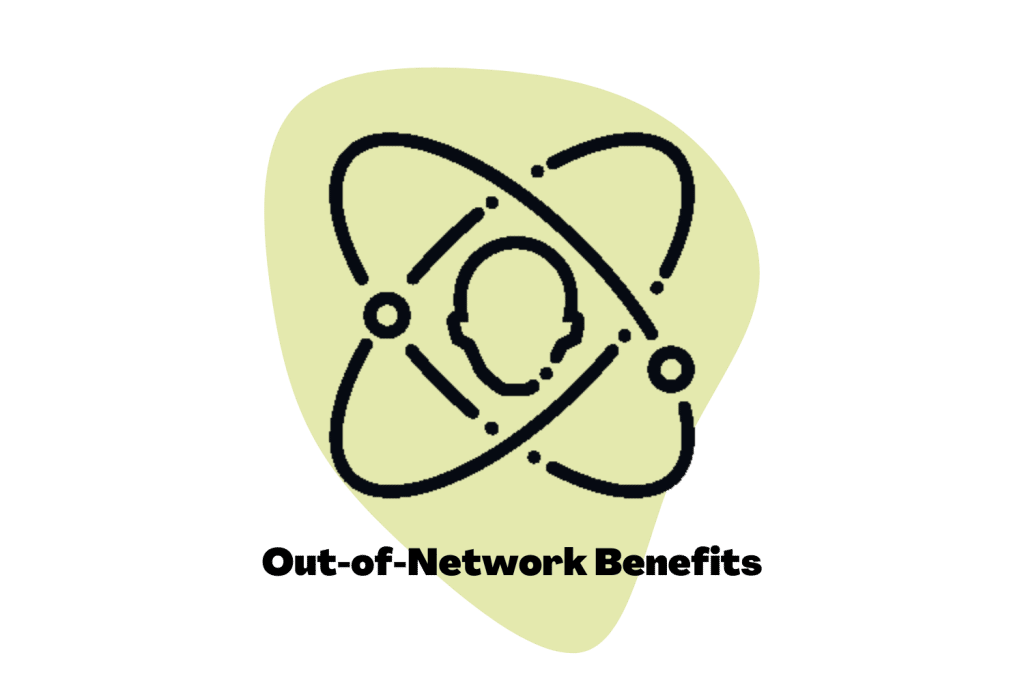
2. Out-of-Network Benefits
Ask your insurer about out-of-network benefits. In some cases, an insurance provider may reimburse you for your therapy’s “out-of-pocket” costs.
Not all insurers will do this, and they may only provide reimbursement for the costs associated with the pre and post-therapy sessions, not the psychedelic therapy itself.
It’s important to speak with your insurer before outlying your personal savings to find out whether they’ll reimburse you for part or all of the money.
Out-of-network benefits are expressly stated in your terms of the agreement. There’s a slim chance that your insurer will cooperate in funding your therapy, but it’s a chance that’s well worth exploring.
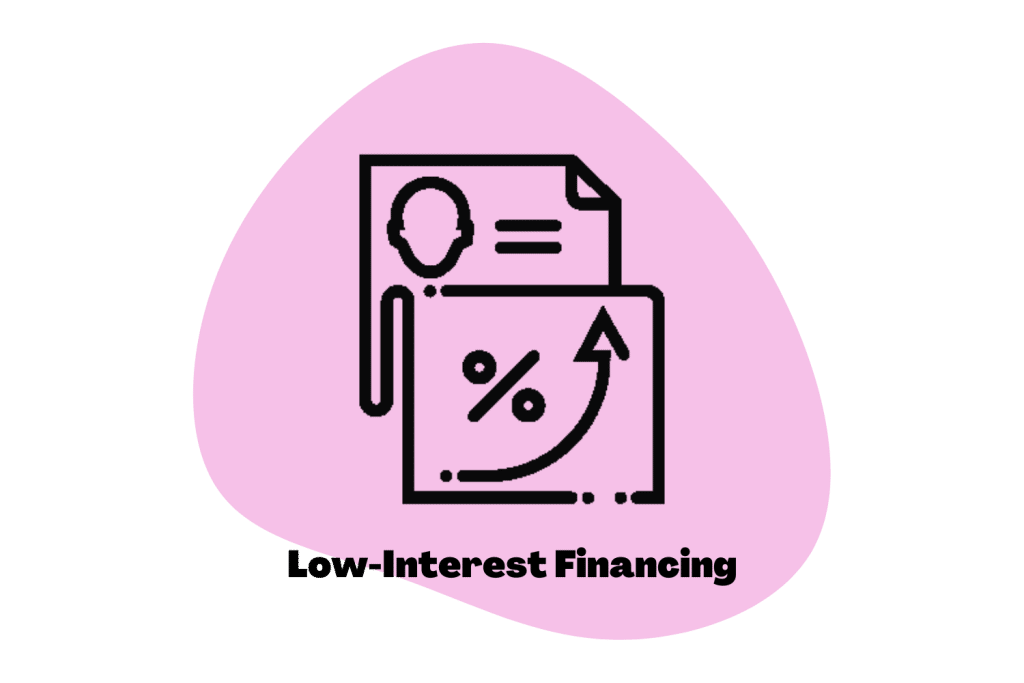
3. Low-Interest Financing
Some clinics may offer finance spread over 12 to 24 months at 0% APR. Others that offer this type of treatment may provide finance at a low APR and potentially reduced rates to assist those in need.
It’s definitely worth searching around and speaking to clinics that currently offer psychedelic-assisted therapy treatments to see if a finance plan is affordable for you.
What is Psychedelic-Assisted Psychotherapy?
Psychedelic therapy, otherwise referred to as psychedelic-assisted psychotherapy, is a practice that involves the patient ingesting a psychedelic substance as part of a psychotherapeutic process. Psychedelics break walls down and help patients delve into themselves to confront problems at their core.
The professionally supervised use of substances such as psilocybin, LSD, MDMA, and ketamine may be used alongside conventional therapies, including talk therapy, cognitive behavioral therapy (CBT), shadow work, and more.
Psychedelic-assisted psychotherapy usually consists of three phases:
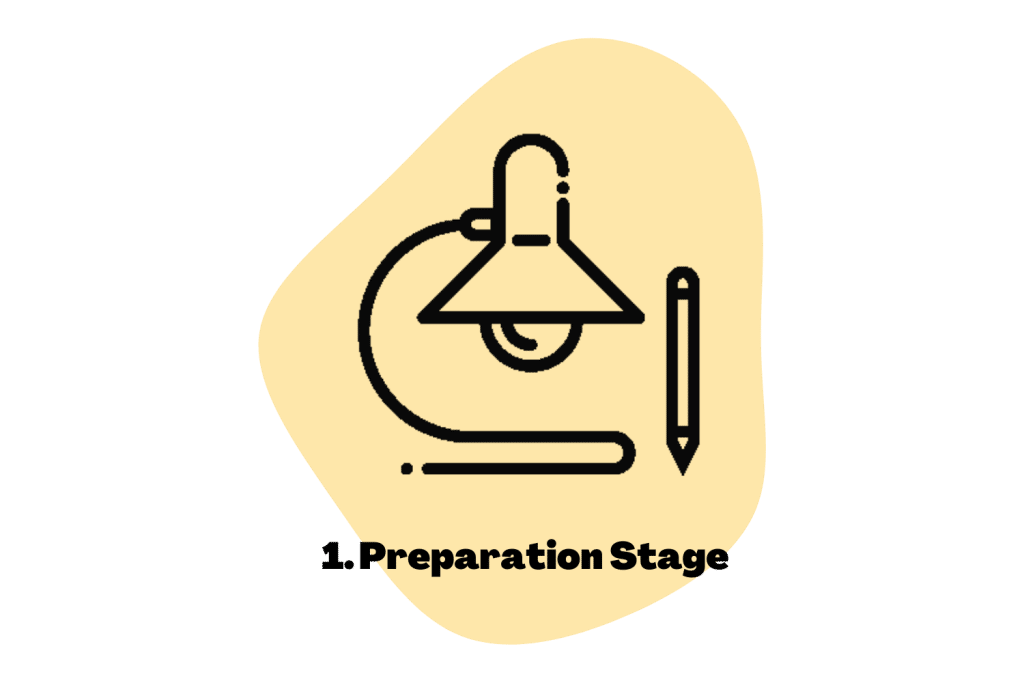
1. The Preparation Stage
Before a patient goes through the psychedelic experience, they must be prepared. This usually involves several psychotherapy sessions. During this stage, the therapist can get a picture of the patient’s issues, what they want to achieve from the therapy, and an ideal dosage based on their individual biology.
This is also the time for the patient to prepare mentally. Patients are encouraged to remain open to challenging experiences during their trip. They’re taught to ask themselves questions rather than “walk away” when they see something that may be difficult during their psychedelic experience.
Physical preparations are also made during this time if the therapist sees fit. A specific diet plan may be provided so the patient can ready their body for the substance they’ll consume.
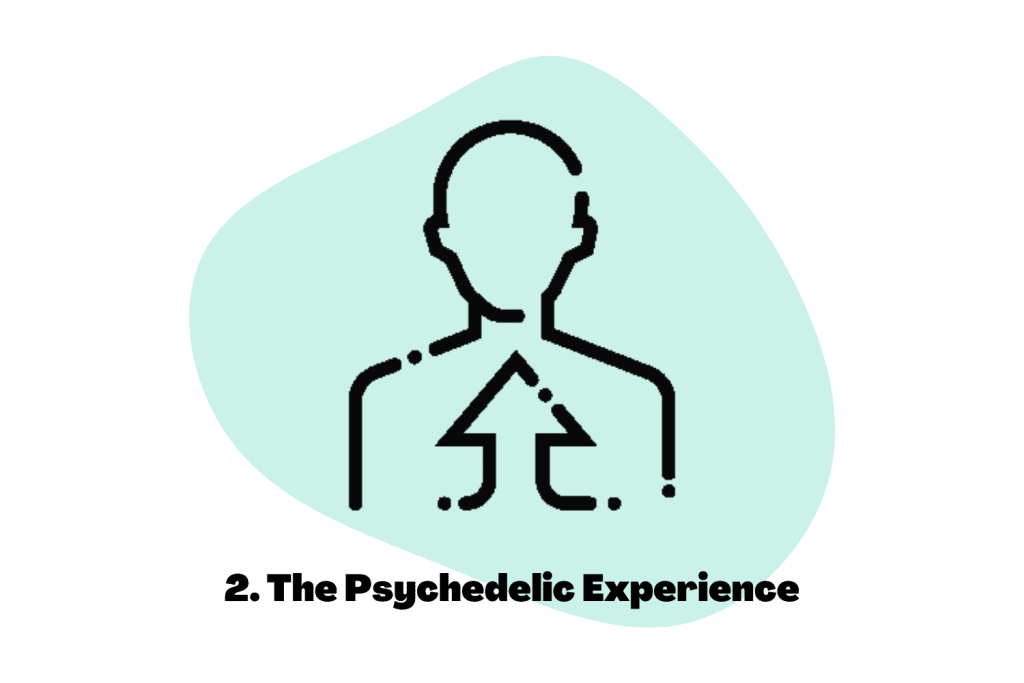
2. The Psychedelic Experience
During this phase, the patient is brought to a relaxed, neutral, and controlled environment where they’ll experience the psychedelic trip. The therapist sets the mood and ensures the patient is in the right frame of mind before they get started with the medicine.
The patient takes a tailored dose of the substance in a controlled environment under the supervision of a therapist. They are guided through the experience and urged to delve into the root of their mental trauma.
Therapists often stay silent during this phase to allow the patient to become immersed into themselves. However, gentle assistance and guidance may be offered if the patient is struggling. After the trip, the patient is offered water and food to allow them to recover and “step back into reality.”

3. The Integration Stage
After the psychedelic-induced part of the therapy comes the integration sessions. During this phase, the patient is given the opportunity to talk about their psychedelic experience. Throughout these talk therapy sessions, which may be spread over a number of days, the therapist will help the patient make sense of their experience.
During these conversations, the patient will have the opportunity to process the experience and uncover the meanings behind what they may have seen during their trip. This is the time when many people have their “breakthrough” moment.
The talk sessions provide the patient time with a professional that can help them make sense of their traumas and learn how to move on from them in a sustainable and healthy way.
Related: Colorado I-58 Paves the Way for Magic Mushroom Healing Centers.
Who Can Psychedelic-Assisted Therapy Help?
Psychedelic-assisted psychotherapy may be able to help a range of people struggling with mental illness. This form of therapy is particularly effective on people who are “treatment-resistant,” — meaning they’ve exhausted other conventional treatments without success.
Here are some of the disorders that PAP may help treat:
- Anxiety & depression
- Existential anxiety during end-of-life care
- Posttraumatic stress disorder (PTSD)
- Substance and alcohol addiction
How Much Does Psychedelic-Assisted Therapy Cost?
The cost of psychedelic-assisted therapy varies substantially. Currently, an average session with psilocybin costs between $300 and $1000 (USD) per session. Several days and potentially weeks are often required which could increase the cost further.
There are lower-cost options available too, but it’s better to go with a highly-regarded, professional clinic/retreat due to the nature of the treatment.
Many facilitators offer affordable psychedelic sessions that are excellent providers, but it’s more difficult to vet these practitioners without some kind of regulatory or verification layer. There are groups working on a solution for this, but it’s a bit of a wild west at the moment.
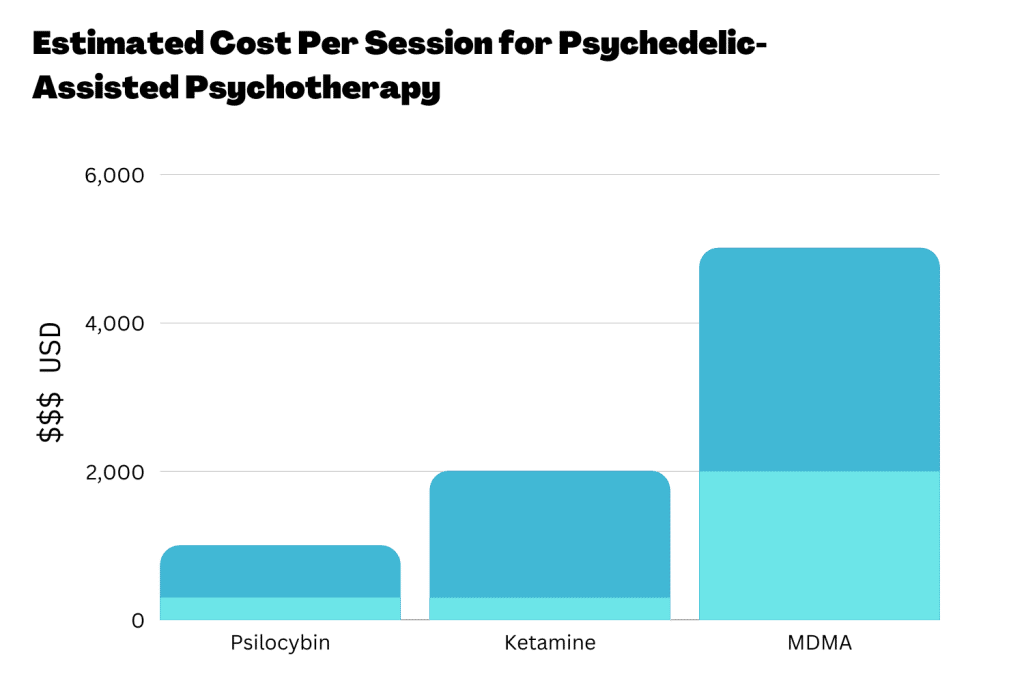
Psilocybin & MDMA Treatments
Due to legalities, patients often travel to countries where substances are unrestricted, such as Jamaica, for psilocybin or MDMA therapy. This alone can be a huge cost since it takes a large amount of money for flights, accommodations, and the therapy itself.
Psilocybin retreats offer professional psychedelic-assisted therapy and are generally located on the island of Jamaica.
The Atman Retreat is an example of a retreat with an excellent reputation. A four-day treatment here sits in the region of $2,000 to $3,000, including airport pick-up, accommodation, treatment, and a water-side setting. This doesn’t include your travel expenses, so you’ll have to add the costs of flights to the treatment.
Realistically, a single therapy session spread over multiple days will set you back around $5,000, and there’s no guarantee you won’t require further sessions. Treatment isn’t cheap, but the cost of living with depression or PTSD is higher.
There are a few psychedelic-assisted therapy clinics under trial in the United States. However, getting a spot as a “test subject” can be extremely difficult and costly. If you’re interested in applying for a trial, check out the MAPS website for current studies.
Ketamine Treatments
Ketamine clinics are becoming more prevalent in the US and other countries.
Ketamine infusions are commonly used to treat depression, pain, PTSD, and OCD. The price depends on the location, dosage, and other factors and can cost $300-$2000. However, many patients say relief lasts a few weeks up to a few months.
The Future of Psychedelic-Assisted Therapy & the Health System
As more clinical trials for psilocybin and other psychedelic use in therapy appear, we’ll likely see the laws around these substances change. Legislation in some countries — Canada, for example — is already changing in favor of some substances. Psilocybin therapy is currently legal here for treating existential anxiety and dread involved with a terminal diagnosis and end-of-life care.
As the legislation surrounding these substances is adjusted and legal clinics begin to pop up, we can only assume that insurance providers will start to change their policies. If psychedelic-assisted psychotherapy becomes widely accepted as an effective treatment for various mental health disorders, insurance companies will have to create coverage plans.
We believe one of the biggest catalysts for this is going to be the influence of large corporations on their insurance providers. One of the ways companies use to attract talent is to provide impressive benefits packages to employees. It’s possible some of the more progressive companies will start demanding PAP coverage from their insurance providers as part of this package.
So, how long will this take?
In short, nobody knows for sure. But, the progress so far is extremely promising, and we can assume that certain psychedelics, such as psilocybin, follow the route that cannabis took back in 2016.
On January 5, 2022, Washing State legislators proposed Senate Bill 5660, which would legalize psilocybin for supported use among adults over the age of 21. Applications for the sale and purchase of psilocybin products and the provision of psilocybin-assisted therapy services will be accepted starting January 2, 2023.
With this in mind, we could start seeing legal clinics as soon as 2023. However, how long will it take for insurance companies to start revising their coverage policies? We don’t know.
A Final Word: Will Your Insurance Pay for Psychedelic Treatment?
Unfortunately, as it stands now, it’s unlikely that your insurance company will cover psychedelic-assisted therapy anytime soon. However, as the legislation surrounding these substances changes and we start to see more clinics appearing, insurance companies will follow suit.
For now, other options are available for those seeking help through psychedelic therapy. Financing, flexible spending accounts, and health savings accounts can help you spread the costs of treatment, so it’s less impactful on your financial situation.
We hope to see this form of therapy more widely available to the people that need it in the near future. We’re in the midst of a mental health crisis, and psychedelics pose a promising part of the treatment and recovery of the people that need them.

